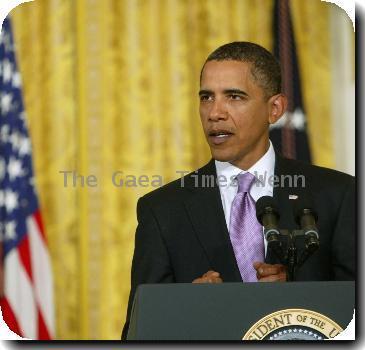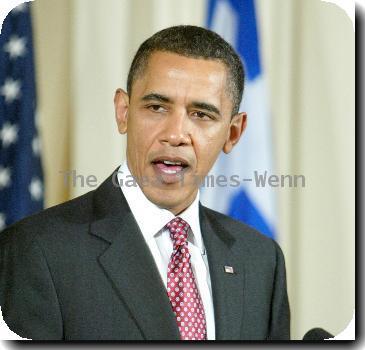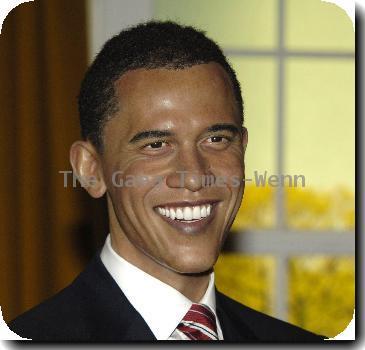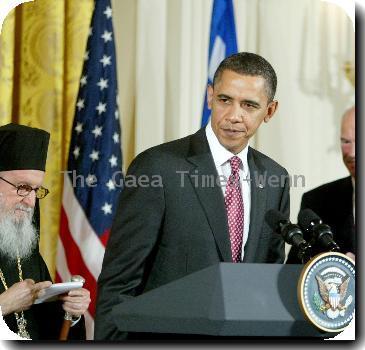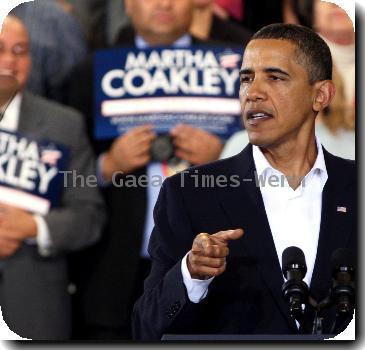UK’s Prime Minister Brown calls voter a ‘bigoted woman’ _ soundbite could haunt his campaign
By David Stringer, APWednesday, April 28, 2010
UK campaign gaffe: Brown calls voter a bigot
LONDON — Britain’s Prime Minister blundered into the first major gaffe in his country’s short campaign season Wednesday when an open microphone captured him slamming a voter he’d just been trying to win over.
Brown, apparently forgetting that he’d left a television microphone pinned to his chest, called 66-year-old Gillian Duffy a “bigoted woman” as he was being driven from a public meeting where she had needled him on immigration.
Within minutes the bad-tempered aside had exploded across the British media, and within a couple of hours Brown was rushing back to her home to beg Duffy’s forgiveness and writing to his supporters to make clear he’d apologized.
All the rest of the country could do was look on as the cringe-inducing drama played out over television and radio. The debacle dealt Brown a big setback on the eve of the last TV debate ahead of the May 6 vote.
Duffy, a retired widow and a self-described supporter of Brown’s Labour party, met with the prime minister at a campaign stop in the northern town of Rochdale and questioned him about the influx of eastern European immigrants who have come to Britain.
Many people are angry that immigrants are taking jobs at a time when Britain’s unemployment level is rising. More than 1 million eastern Europeans have moved to Britain since the EU gained new members such as Poland, Bulgaria and Romania in 2004, but many have since left during the bruising recession.
Brown brushed the question aside and explained that Britons were also working in Europe, jumping into his prime ministerial Jaguar before complaining to an aide about the awkward encounter.
“That was a disaster, they should never have put me with that woman. Whose idea was that? It’s just ridiculous,” Brown is heard saying.
Asked what Duffy had said to upset him, Brown told the aide: “Everything. She’s just a sort of bigoted woman.”
Duffy, a grandmother who had worked with handicapped children, had questioned Brown on taxes, university fees, immigration and Britain’s record deficit of 152.84 billion pounds ($235.9 billion).
Brown’s gaffe was immediately broadcast and he was then grilled about it on a televised radio show. Slumped over with his head in his hand, Brown said he realized he had made a mistake and regretted the remarks.
“He’s an educated person, why has he come out with words like that?” Duffy said. “He’s calling an ordinary woman who’s just come up and asked questions … a bigot.”
Duffy said Brown had initially appeared receptive as they discussed policy. “I thought he was understanding but he wasn’t, was he?” said Duffy, who said she had planned to vote Labour but would now most likely abstain.
Brown later telephoned Duffy to apologize, then unexpectedly showed up at her home.
Smiling broadly but awkwardly, Brown emerged 40 minutes later and said Duffy had accepted his apology. Duffy stayed in her house and refused to face the cameras.
“She has accepted that there was a misunderstanding and she has accepted my apology,” Brown told reporters. “If you like, I am a penitent sinner.”
The political consequences of Brown’s blunder could be severe since he already is third in opinion polls for the general election and desperate to show his supposedly statesmanlike credentials to dispatch less experienced rivals: Conservative leader David Cameron and Nick Clegg of the Liberal Democrats.
In an ironic twist, Brown’s campaign team had even overhauled its election strategy this week — betting that more contact between their leader and ordinary people would revive his flagging election hopes.
Wednesday’s incident is the latest in a long line of gaffes where politicians whose private remarks have been made accidentally public — from President Ronald Reagan’s 1984 joke declaration of war on Russia to President George W. Bush’s overly familiar “Yo, Blair” greeting in 2006 to Brown’s predecessor, Tony Blair.
Most recently in the United States, as President Barack Obama prepared to sign the big U.S. health care overhaul, Vice President Joe Biden said quietly into his ear, “This is a big (expletive) deal,” not realizing the comment was being picked up on an open microphone.
Since then, the Biden episode has been repeatedly viewed on YouTube and even turned into T-shirts — but not seen as a political liability.
Brown had a previous gaffe last year when he sent a handwritten note to a mother whose son was killed in Afghanistan. He had misspelled the soldier’s name and was forced into an embarrassing apology.
A book published in March accused Brown of regularly snapping at staff.
Brown’s foes could barely disguise their delight at his high-profile misstep. “The thing about general elections is that they reveal the truth about people,” George Osborne, a senior Conservative Party lawmaker, said.
Charlie Whelan, a former aide to Brown, used his Twitter Web site to defend the leader. “Who has not let off steam under stress and strain” of a campaign? he wrote. “He’s apologized, move on.”
Bookmaker William Hill said the gaffe could dent Brown’s election chances, immediately lengthening the odds of a victory for his Labour Party to 16/1 from 12/1. “It could prove to be a very damaging blow to his chances of retaining power,” said William Hill spokesman Graham Sharpe.
Ivor Gaber, a political campaign analyst at London’s City University, said the incident would damage Brown but may not prove fatal.
“People know that Brown is no angel, and though this won’t do him any good, it’s not certain how this will play out,” he said.
Other allies also rushed to Brown’s defense. “This is something that he knows he shouldn’t have said,” said Treasury chief Alistair Darling, a Labour lawmaker.
Associated Press Writer Paisley Dodds contributed to this report.
Tags: Barack Obama, Campaigns, England, Europe, General Elections, Gordon Brown, London, North America, Twitter, United Kingdom, United States, Western Europe

